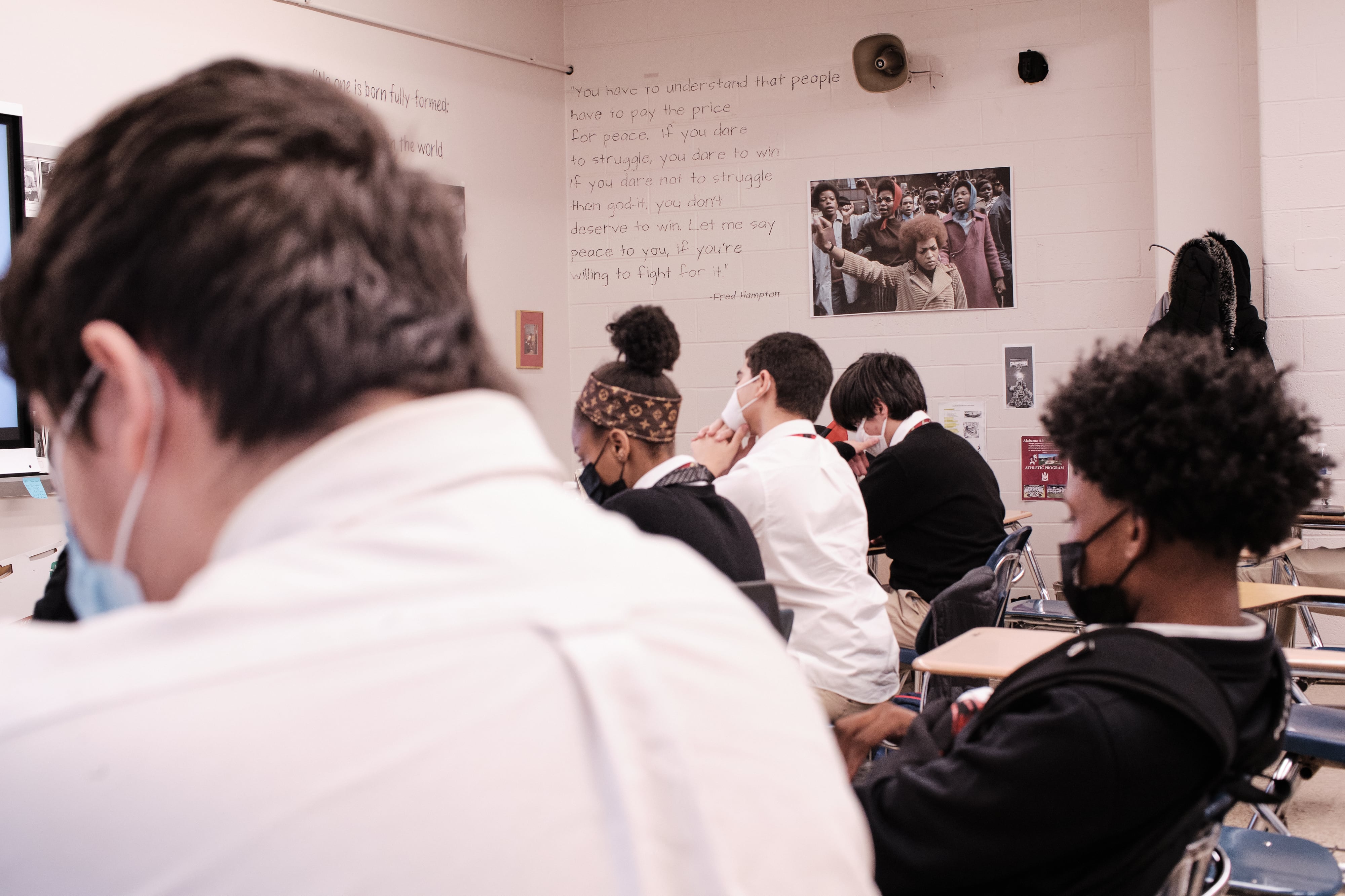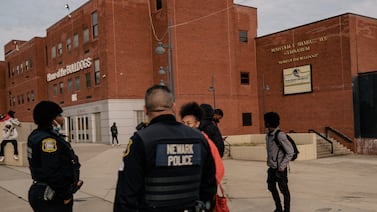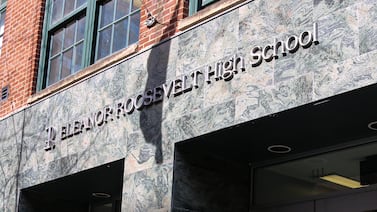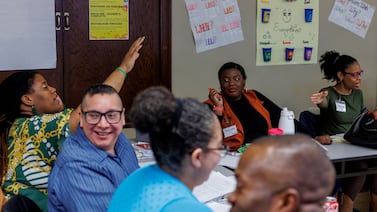The Detroit school district is retooling its African American history elective courses for middle and high school, replacing outdated social studies materials in favor of a textbook that offers a more expansive look at Black history and culture.
The district has chosen a program from educational publisher Black History 365 that includes curriculum, textbooks, digital materials, and professional learning tools. It will be introduced in classrooms across the district beginning this fall, under a one-year, $377,300 contract.
The switch is part of a broader reexamination by the Detroit Public Schools Community District of its social studies curriculum. In the summer of 2020, following the racial justice demonstrations across the country, the Detroit school board adopted an anti-racism resolution, calling in part for a review of school policies and curriculum to better support the diverse learning needs of students.
The review has led the district to introduce new history course materials and organize a task force to audit its entire social studies curriculum.
This school year, in high school history courses, teachers are using a new publication, “Citizen Manual Detroit,” to introduce students to Detroit’s history of activism and civic engagement, Michigan Advance reported. The effort was funded by the Skillman Foundation, which also contributes to Chalkbeat.
The district had already begun sprinkling local history and politics throughout civics material taught across K-12. In second grade, students learn the history of specific Detroit neighborhoods, while fifth graders explore the lives of enslaved and free Africans in Detroit.
About 900 students are taking an African American history class this school year; the district hopes to offer the course in more schools to increase that number to 1,325 students next year.
The district currently uses a textbook from Prentice Hall titled “African-American History,” published in 2011. The district’s Office of Curriculum and Instruction filed a proposal last fall to replace it with something more current, Superintendent Nikolai Vitti said.
Aniyah Pouncy, a senior at Cass Technical High School who took the African American history elective last year, said she was excited about the opportunity to “learn something new” and thought that a class devoted to Black history would offer something more “than your average history class.”
But the experience left her dissatisfied. The lesson plans didn’t feel fully “planned or interesting,” she said, and the material from the decade-old Prentice Hall text appeared outdated and didn’t have enough about present-day Black experiences.
“I just don’t think it was as fulfilling as it could have been,” she said, suggesting that the class offer more discussions about the contemporary impact of housing, voting and job discrimination.
Aniyah’s favorite project was a research assignment about historically Black colleges and universities, which ultimately allowed her to learn more about Spelman College, which she’ll be attending this fall.
But major topics like slavery, Reconstruction, and Jim Crow were covered in one-week stretches that felt too “short” and “repetitive,” Aniyah said.
Vitti said the district chose Black History 365 because the curriculum “excels at highlighting the rich history of the African diaspora outside of slavery” and centers “African American history in a positive light through strength, joy, and achievement.”
“It was critical that the selected text did not begin with a discussion of slavery,” he added. “It is an all-too-common misrepresentation that Black history begins with slavery, or at least that’s how it is represented in many texts. It is crucial that students realize that this is not the case.”
Black History 365’s curriculum has gained traction in school districts across the country, from Oakland and Denver to Cincinnati and Lexington, Ky.
The curriculum was written by Walter Milton Jr., a career educator and former superintendent in Springfield, Illinois, and Joel Freeman, a former basketball player-development mentor who became interested in Black history during his time working for Washington’s NBA team.
The textbook includes several elements its authors say set it apart, including more than 3,000 documents and artifacts from Freeman’s personal collection, as well as QR codes that students can scan to watch videos that connect to the lessons and an album of 40 songs that connect to the textbook chapters.
Christin Fluellen, another senior at Cass Tech, said she was happy to see the district adopt a more expansive Black history curriculum.
She said she felt like she hadn’t “learned enough about African American history” through required history courses such as American and world history that students take in ninth and eleventh grade.
“The only time I really recall learning about Black history in my history classes is during Black History Month, and even then, the material is very repetitive,” she said.
“We tend to focus on topics such as slavery and the Civil Rights Movement, which is important of course,” she said, “but I feel like it is always from a very specific point of view.”
She added: “Most of the Black history I have learned in the district focused on important leaders such as Harriet Tubman and Martin Luther King Jr., but I believe there should also be more focus on groups like the Black Panther Party and other Black leaders such as Malcolm X and Angela Davis who also fought for equality but in a different way.”
For predominantly Black districts like Detroit, Christin said, a “true and thorough” Black history curriculum would allow students to “have a sense of self and an accurate understanding of our history.”
“It is important that the DPSCD and districts nationwide develop curriculums that include and focus on Black history, because our history is American history,” she said, “and we are not teaching true American history when we leave out the trials, tribulations, and accomplishments of Black people in every era.”







